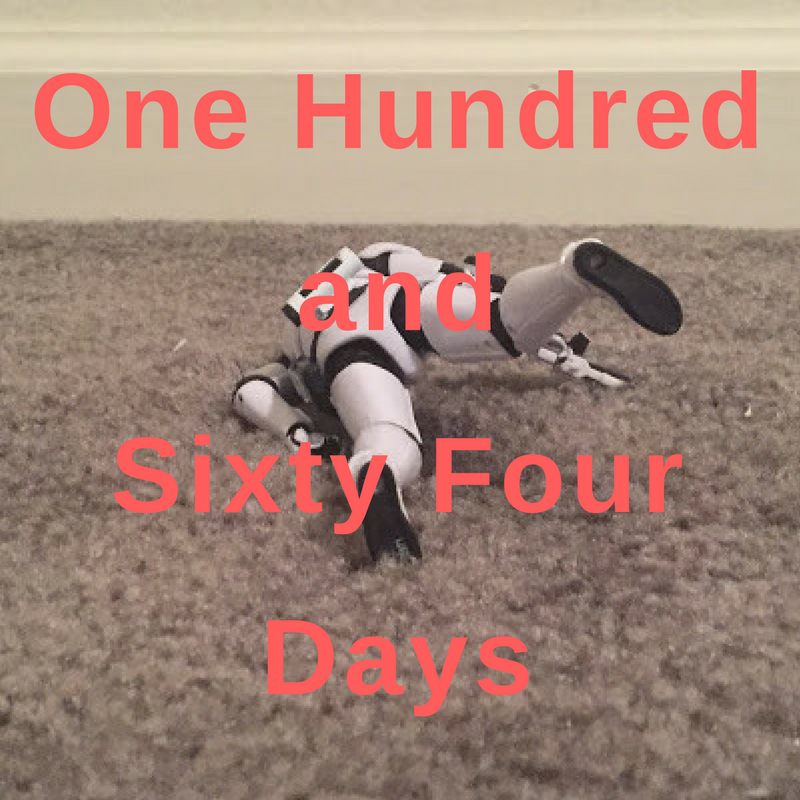
There are times when fear is good.
It must keep its watchful place
at the heart's controls. There is
advantage
in the wisdom won from pain.
Should the city, should the man
rear a heart that nowhere goes
in fear, how shall such a one
any more respect the right?Aeschylus, The Euminides*
The killer walks the streets of the city in the long black night. His mask is featureless, his face hidden, his demeanor unmoved. He struggles against injustice and crime; he punishes the guilty and protects the innocent.
He is powerful and anonymous, unaccountable to any authority save his own conscience.
It would be a mistake to deny the powerful attraction of the vigilante. It's easy to dismiss the idea out of hand; much harder to come to terms with its attraction. At his core the vigilante is the antithesis of civilization: an individual abjuring the implied social contract in order to circumvent societal prohibitions against unsanctioned violence. The state monopoly on force protects both the innocent and the guilty, offering protection to all under the auspices of justice and guarding against the ruinous consequences of unregulated personal vendetta.
And yet, even 2500 years after the Oresteia, human beings have not lost the inclination towards violence; nor have we lost the inherent distrust of the state; or our skepticism of the state's ability to deliver the full range of protection implied by the functional social contract. Any "rational" person can deplore Charles Bronson in Death Wish, a vengeful father and husband pushed to the point of brutal violence by pervasive criminality. The problem with Death Wish is not that the movie depicts an inconceivable horror, but that its central dilemma is so ubiquitous as to be universal. The easiest solutions to problems of justice are also the most dangerous - and often the most unconscionable.
Rorschach is a parody of a type - a particular brand of urban vigilante that became an object of undeniable, grotesque fascination during the 1970s. The perception that crime and blight had won the war for America's largest cities produced a violent reaction, an expression of rage at the feeling of impotence that accompanied the perception of constant fear. Whether that perception matched any actual reality of urban experience is immaterial.
The superhero had been created during a previous era of widespread societal dissatisfaction: in the late 30s, Superman fought crooked industrialists and Batman dispatched gruesome mobsters to gruesome deaths. Popularity softened the characters' harder edges, but once the harmless, family-friendly camp of the 50s and 60s iterations began to wear off, some of the original darkness began to reappear in the super pages. It didn't happen overnight and the circumstances of publishing dictated that even the relatively dark early-70s incarnation of Batman remain bashfully tame by any other standard than that set by mainstream superhero comic books. But eventually Wolverine and the Punisher made their debuts, and eventually the comics market changed enough for these characters to fulfil their roles as full-fledged vigilantes. Batman darkened to the degree that his semi-official imprimatur - his longstanding working relationship with the Gotham City Police - became shadowed by his increasing brutality and merciless, methodical determination.
Rorschach is a parody of a type - a type that remains resolutely resistant to parody. No matter how far the creators go in order to paint the vigilante in an unflattering, belittling, comical light, as long as the essential motivation of the urban vigilante remain untouched, the appeal can't be diminished. Rorschach is dirty, destitute, delusional, traumatized and dumb, and yet we still want to identify with him. We still want - we still desperately need the freedom to condone his actions, despite their reprehensible nature.

In the context of the original book, Moore bends over backwards to frame Rorschach as a demented goon, a far right paranoiac stuck to an juvenile code of ethics, the inflexibility of which promises not merely danger but complete ruin. Zack Snyder's adaptation removes much - but not all - of Moore's careful satirical rebuttal against the type. Gone is the putrid apartment, the hateful words to his landlady, the gruesome excerpts from The New Frontiersman. But even without the book's more obvious coding, it's still impossible to mistake the movie's intentions. Rorschach can't be anything but a stone killer, a sociopathic serial murderer whose only saving grace is that his chosen victims are not attractive blonde joggers or lonely hitchhikers, but presumed criminals. On screen, Rorschach gains much by the proximity to his closest filmic inspirations - not Batman (although having Jackie Earle Haley deliver his lines in a perfect approximation of Christian Bale's laughable Bat-rasp was an excellent touch), but Travis Bickle, Charles Bronson's Paul Kersey, and Frank Zito, the urban predator from William Lustig's Maniac.
Frank Castle is a serial killer - he ceased to be a vigilante, really, the moment he fulfilled his initial motivation and killed the mobsters who killed his family. His prey of choice just happen to be murderers, drug dealers and rapists - unambiguous scum by any definition. He is a monster, just as Rorschach is a monster - but "monster" is a loaded term whose utility is limited by its vagary.
When Rorschach confronts Blaire Roche's murderer after discovering the child's dismembered corpse in an inner city shotgun shack, he is changed irrevocably**. Snyder's film changes the scene somewhat: instead of the cold blooded means of dispatch Rorschach utilizes in the book, he simply hacks the killer's head open with a butcher knife - more gory, nowhere near as disturbing. Still, the moment of revelation remains intact - seeing the girl's dismembered femur being fought over by two German shepherds, an already twisted personality snaps from the torsion and splinters into an unrepentant murderer.
The scene is staged and filmed in much the same manner as a similar scene from any number of slasher films might be. The killer stumbles through a darkened room - tension builds - the dog corpses shatter the window - Rorschach confronts the killer - Rorschach dispatches the killer. We are meant to be horrified, but by what? The killer's gruesome fate, or Blaire Roche's gruesome death, or Rorschach's gruesome, dispassionate revenge?
The problem is not simply that Rorschach kills a child murderer, but that we want him to do so. There isn't any ambivalence here. Any rational person, when faced with the enormity of such an act in real life would feel exactly as Rorschach does - the difference is that most people never have the chance to act on their feelings of revulsion and loathing in such an instance. If there is ever such a thing as a "justifiable" murder, this is it.
But even given that, is murder ever justifiable? Can we as a society continue to exist while also acknowledging the desire for the ritualized dispatch of villainy?
What about video games that simulate murder on a massive scale, inviting the player's moral complicity in committing acts of unimaginable barbarity? Does it matter if the game labels the dead simulations as "mobsters" or "terrorists" or "aliens"? Slasher films, on account of their formulaic, grand guignol cartoonishness, invite the audience to actively root for the killers as they concoct ever more elaborate schemes to murder their prey. These forms of entertainment offer a form of exorcism, cultural catharsis intended to reinforce the moral order through negative purgation.
Or at least, that's the rationale . . .

Despite his status as the ultimate right-wing proto-fascist paranoiac serial murderer vigilante, he's also the only character in Watchmen who actually knows what's going on. Without him, there's no plot: Nite Owl and Silk Specter would have no inkling of the larger conspiracy without his warnings; Ozymandias clearly regarded neither of them as a credible threat; Dr. Manhattan might never have cared enough to return to Earth without the chain of events put into motion by Rorschach's arrest; even up to the very end of the book, Nite Owl could never have made the connections between the conspiracy and Ozymandias without Rorschach. He's not that bright but he's methodical and tenacious. He's wrong more often than he's right, but once he perceives the shape of the mystery he never lets go. He's not a "super-detective" like Batman, but he knows the right questions to ask, and how to ask them. He's the only character who even perceives the lingering connections between the disparate crew of former superheroes - without his prompting, they would most likely never have come together by the book's final scenes.
Snyder is smart enough, despite his general incompetence as a director of action, to frame Rorschach's movements in an entirely different manner than those of everyone else. Whereas everyone else - the Comedian, Nite Owl, Silk Specter, Ozymandias - utilizes extremely fake stylized movie kung fu, parrying and trading blows in the way that only trained Hollywood stuntmen can, Rorschach moves like a pit bull terrier. He doesn't fight for any reason other than to put his opponents down. When I was very young my father gave me an invaluable piece of advice which - thankfully - I have never had to use: if you ever find yourself cornered into a fight, don't fuck around. Do whatever you can to incapacitate the person you're fighting before they do the same to you.
Rorschach fights like he moves - hardly graceful, pinched, tense like a wire - but effective and deadly. There's nothing fancy about it, and relatively little of the slow-mo nonsense with which Snyder loves to infest his films (I can't remember whether or not there's any slo-mo during his fight with the cops).
The only two characters in Watchmen with any real agency are Rorschach and Ozymandias. Both of them are problem solvers. Ozymandias sees the problem of a world on the brink of nuclear war and concocts the most wondrously intricate and foolhardily elaborate scheme in the history of man with which to solve the impending apocalypse. As he delivers his long monologue to Nite Owl and Ozymandias at the climax of the book, he traces his origins back to his love of Alexander the Great and the cutting of the Gordian Knot. The key to the story is a throwaway line he delivers to his death henchmen - "Lateral thinking, you see. Centuries ahead of its time."
Only - his plan is the exact opposite of Alexander's pioneering exercise in lateral thought. It's practically a Rube Goldberg device, requiring so many different and disparate elements to occur in such exacting precision that even the slightest miscalculation could destroy the whole thing. No, the real lateral thinking would be simply to ask Dr. Manhattan to render every piece of weapons-grade plutonium on the planet Earth inert. In that instance, war would probably have still been inevitable, but not planet-wide desolation. In any rate, it stood more of a chance of succeeding than teleporting a magic space squid into Times Square.
Rorschach was the only real threat to Ozymandias. If he had been smart, Rorschach would have been the first one dead - an outlaw hero estranged from even his one friend. But of course, he doesn't do this, because Ozymandias is fucking crazy. He lives in a giant biodome in Antarctica plotting world domination - he's nuttier than Rorschach ever was. As a result, he doesn't even register Rorschach as a threat. Left-wing utopianism is revealed to be as much a threat to the peace and security of the world as right-wing paranoia.
The real lateral thinker is Rorschach. Detectives are by definition lateral thinkers. For him, the problem is not world war, but murder: the solution to murder is to punish the guilty; the solution to a cover-up is to tell the truth. The thing is, he's right. Everyone knows Rorschach is right. The problem at the climax of the book is not that Rorschach is wrong in his desire to tell the truth about the conspiracy, but that the problem surpasses right and wrong. Rorschach is a character who quite literally cannot see the world in any other terms than black & white. Through the screen of his mask, he can't perceive grayscale****.
Human life in common is only made possible when a majority comes together which is stronger than any separate individual and which remains united against all separate individuals. The power of this community is then set up as 'right' in opposition to the power of the individual, which is condemned as 'brute force'. The replacement of the power of the individual by the power of a community constitutes the decisive step of civilization. The essence of it lies in the fact that the members of the community restrict themselves in their possibilities of satisfaction, whereas the individual knew no such restrictions. . . . The final outcome [of civilization] should be a rule of law to which all - except those who are not capable of entering a community - have contributed by a sacrifice of their instincts, and which leaves no one - again with the same exception - at the mercy of brute force.Sigmund Freud, Civilization and Its Discontents***
All of which leaves the audience in an extremely difficult position. Rorschach isn't merely the ultimate parody of urban vigilantism. He is the apotheosis of the flaneur as a type - the figure who not only perceives the semiotics of the urban landscape but is able to interpret it, to graft legibility onto the illegible. Ironic, considering that Rorschach's face is itself a shifting symbol of indeterminate meaning. Thinking laterally, Rorschach reduces every problem into a binary dichotomy between good and evil, just and unjust. Even if, as is often the case, his semiotic interpretation is wrong, he still retains his certainty. It's a comforting idea whose seductive power cannot be overstated.
And that is why Rorschach can't be easily dismissed. Moral absolutism is a powerful aphrodisiac. The ability to reduce all problems to their essential, elementary components - the better to destroy them - is perceived to be an unassailable virtue in modern society. The willingness to act on the most violent impulses imaginable under the ideological cover of ethical certainty is, regrettably, one of the mainstays of human life. That these impulses are often tied to the politics of extreme right-wing paranoia is, ultimately, only circumstantial: the impulse towards simplification and moral pragmatism is universal.
Rorschach is going to be with us for quite some time. The success and cache of the Watchmen film has ensured that, after decades of bubbling under the surface, he will finally (and perhaps regrettably) take his place as a legitimate member of the pulp culture pantheon, alongside Jason and Freddie and Scarface and Spider-Man, staring down menacingly from dorm-room walls for decades to come. Just as in comics, the viewer's reaction to Rorschach will change depending on the individual's inclination - almost too perfect a metaphor for the character, but the conclusion is unavoidable.
What do I see when I see Rorschach? I see myself, reflected in negative exposure. I see the dissolution of civil society. I see perfect symmetry.
*(517-525); Aeschylus. Aeschylus I. Edited by David Grene & Richard Lattimore. Translated by Lattimore. Chicago: University of Chicago, 1953. 133-171.
** Incidentally, about six months ago when the buildup to the film had just begun, I mentioned to my girlfriend that there was one scene in particular from the book which, if replicated with any fidelity, would render the film practically unwatchable - this is that scene. It was as horrifying onscreen as I imagined, enough so that I am mildly surprised the film didn't receive an NC-17.
*** (49); Freud, Sigmund. Civilization and Its Discontents (Das Unbehagen in Der Kultur). 1930. Edited and translated by James Strachey. New York: W.W. Norton, 1989.
**** Credit where it is due: my girlfriend came up with this figure of speech. The fact that she - someone who, I repeat, has not read the book - was able to deduce such an essential but easily-obscured point about the story just from the evidence of the film proves that, at the very least, Snyder isn't a total incompetent.





1 comment :
I bought a Mask from www.morphonite.com which is really great. I just love it.
Post a Comment